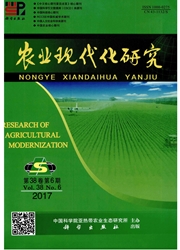

 中文摘要:
中文摘要:
在界定了山地化及其民俗生态旅游经济概念的基础上,分析了山地化民俗生态旅游经济研发的历史、自然地理渊源、地质和入文景观、社会经济资源条件;并以武陵山区腹地的重庆市东南地区为例,分析了该区域发展民俗生态旅游的比较优势与相对劣势。提出了从同一省(市)管辖的行政区向他辖的“地缘经济区”开放协作,构筑武陵山区民俗生态旅游经济圈乃至“中国-武陵山经济协作区”,实现不同利益主体的区内和区际的山地化民俗生态旅游经济协同开发的构想及对策。
 英文摘要:
英文摘要:
On the basis of defining the mountainous self-ignite and the concept of the folk custom ecotourism economy, this thesis analyses the history of research and development in folk custom ecotourism economy, geographical origin, natural aggregation elements and social aggregation elements, socio-economic resources; and taking the mountainous hinterland of Wuling in the south-east of Chongqing as an example, this thesis makes an analysis of the advantages and disadvantages of developing folk custom ecotourism economy. Finally,the thesis proposes the blueprint and countermeasures of building Grand Wuling Tourism Economic Circles and even "China--Wulingshan economic cooperation zone",and achieving the cooperative collaboration on the development of mountainous folk custom ecotourism economy between the stakeholders of the internal-zone and external-zone districts from the same province (municipality) to the geo-economic zones of its administrative jurisdiction.
 同期刊论文项目
同期刊论文项目
 同项目期刊论文
同项目期刊论文
 期刊信息
期刊信息
